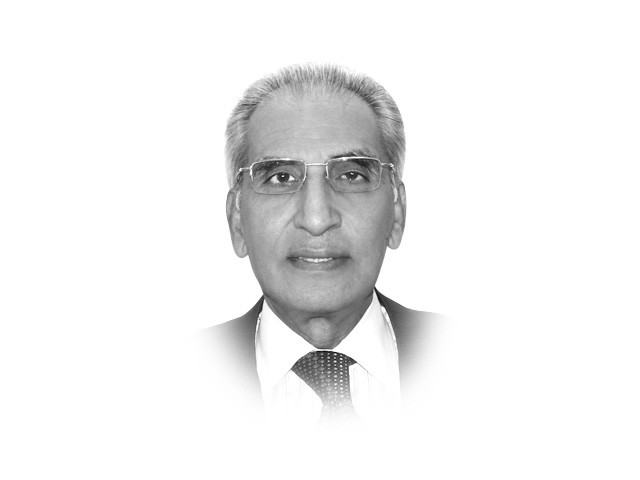The post-2014 scenario — continuing uncertainties
More cooperation between Islamabad, Kabul would be most welcome, but developments so far haven't minimised confusion.

The writer was Pakistan’s ambassador to the EU from 2002-2004 and to the US in 1999
tariq.fatemi@tribune.com.pk
This reiteration of American resolve has been welcomed widely, but none more so than in the US, where anti-war sentiments and an unending fiscal crisis have made continued military involvement in Afghanistan hugely unpopular. At the same time, the prospect of foreign combat troops leaving Afghanistan rather ‘precipitously’ and in circumstances shrouded in uncertainty, has given rise to great concern.
It is, therefore, no surprise that there is for the first time, an air of urgency and anxiety. While most states favour an end to foreign troop presence in Afghanistan, nearly all are apprehensive about what this would mean for peace in that country and the region. Nato defence ministers, in their meeting in Brussels last week, tried to dispel these fears by giving the assurance that the organisation would not ‘abandon’ Afghanistan. But there was no clarity on what this meant, with the German defence minister acknowledging that “many difficult questions would need to be answered before this issue could be settled”. Unofficially, they spoke of their disappointment with the US determination to keep its participation in training missions of Afghans to the minimum, which according to the President’s special assistant, General Douglas Lute, would mean no more than 10,000 troops. And yet, the US has also indicated that it favours an Afghan force of 350,000, which would mean that the planned budget of $4 billion would be inadequate, necessitating greater contribution by Nato member states at a time when European leaders have promised disengagement from Afghanistan and reduced defence expenditure.
With US/Nato troop departure on the anvil, there is evidence of increasing anxiety in Pakistan, too. With the elected government having ceded policymaking on this issue to the military, the latter has been highlighting the importance of giving Pakistan a role commensurate with its sacrifices in anti-terrorism efforts, while giving assurances of its willingness to make a genuine contribution to the peace process in Afghanistan. Army chief General Ashfaq Parvez Kayani’s public declaration that ending domestic extremism is the priority, rather than confronting India or trying to exert influence on Afghanistan, represents a positive development.
But what exactly can Pakistan do? Does it have the kind of influence on the Taliban, which has been ascribed to it? Most unlikely, given the track record of past efforts. Moreover, with visible expansion in the Taliban influence and activities, there is fear that militants on both sides of the Durand Line, could pool their resources and enhance their operations in both countries. If this frightening prospect leads to more cooperation between Islamabad and Kabul, it would be most welcome. But developments, so far, have not minimised continuing confusion and uncertainty. The much-heralded peace process remains stalled even on procedural matters, with the US refusing to make even symbolic gestures, and Hamid Karzai, though not a candidate in the 2014 presidential elections, desperate to ensure that a fellow Pashtun loyal to him wins, so as to retain influence.
The recent Chequers Summit confirmed the huge challenges confronting any initiative to promote a negotiated peace settlement in Afghanistan. But this realisation should spur all sides to redouble their efforts because a failure to do so would be a truly frightening prospect.
Published in The Express Tribune, February 27th, 2013.















COMMENTS
Comments are moderated and generally will be posted if they are on-topic and not abusive.
For more information, please see our Comments FAQ